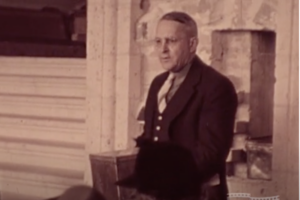In Houston, Austin, San Antonio and other cities across Texas, COVID-19 is flaring into another crisis. Public health experts say that wearing a mask is one of the best ways to prevent the spread of the novel coronavirus. Cities and counties across the state are requiring businesses to mandate masks.
Yet many people continue refusing to wear one.
For many, myself included, there is an instinct to talk — or maybe shout — at them. We want to tell them what the experts say, or lecture about the risks they’re creating for others.
But the research says that’s not likely to work. One-way talking most likely will just harden their decision to not do what the evidence says they should.
Instead, it’s better to listen.
Research shows the importance of getting early buy-in from people presented with new ideas or changes in their lives. That means learning the concerns people bring with them when facing something new.
Cultivating that understanding takes time. So does seeking out real input. And so does transparently showing people what’s happening and making sure they understand it and can respond. If you aim to persuade someone to do something differently — especially something they aren’t inclined to do — you’re far more likely to convince them if you understand their perspective. That’s the first step before using what we know from research to tailor messages.
The truth is that there are varied reasons people don’t like wearing masks. Masks aren’t comfortable and for some, masks can make breathing more awkward and difficult. They can exacerbate skin irritations or hot flashes. And they can prompt others to act inappropriately.
At the same time, make no mistake, masks save lives. They keep people out of hospitals and help ensure there are beds and ventilators for people who need them. It’s vitally important that people wear them to help control this epidemic.
That urgency means we don’t have the luxury of just lecturing or ridiculing the people we need to persuade. Rather, we must listen to those holding out. We need to hear why they won’t wear masks and find alternatives and solutions to address those misgivings.
It is not just individuals who need to get better at listening. Government and corporations must learn how to listen also. Last year, through work I did for the Texas Department of Transportation, I learned they are an agency committed to becoming better listeners. I worked with the agency’s Public Involvement Group to develop training focused on internal strategic planning. They have a difficult job because they need to find the best solutions to transportation issues in our rapidly growing state. My team created new mechanisms and systems for transportation professionals to hear public input early in a project’s design, and to incorporate that feedback to better shape the final decisions.
Similarly, if health authorities had a better sense of why some people refuse to wear masks — through in-depth interviews, surveys, focus groups, social media monitoring and other mechanisms — they could tailor messages and devise solutions that create a better response.
Yes, more consistent messages from political leaders would help, but even that isn’t enough. Pointing fingers won’t convince more people to wear masks — it might convince them not to.
Instead, let’s treat this like the health issue it is. Rather than drawing lines in the sand, let’s hear each other out and find solutions that persuade more people to protect public health.
The goal is not to be right or win the argument. It’s to address real and misunderstood concerns.
That’s a tough task on the best day. We can make it a lot easier by making sure people feel heard.
Truly, there is no substitute for listening.
Keri K. Stephens is an associate professor and distinguished teaching professor in the Moody College of Communication and an affiliated faculty member in the Annette Strauss Institute for Civic Life at The University of Texas at Austin.
A version of this op-ed appeared in the Lubbock Avalanche-Journal.




